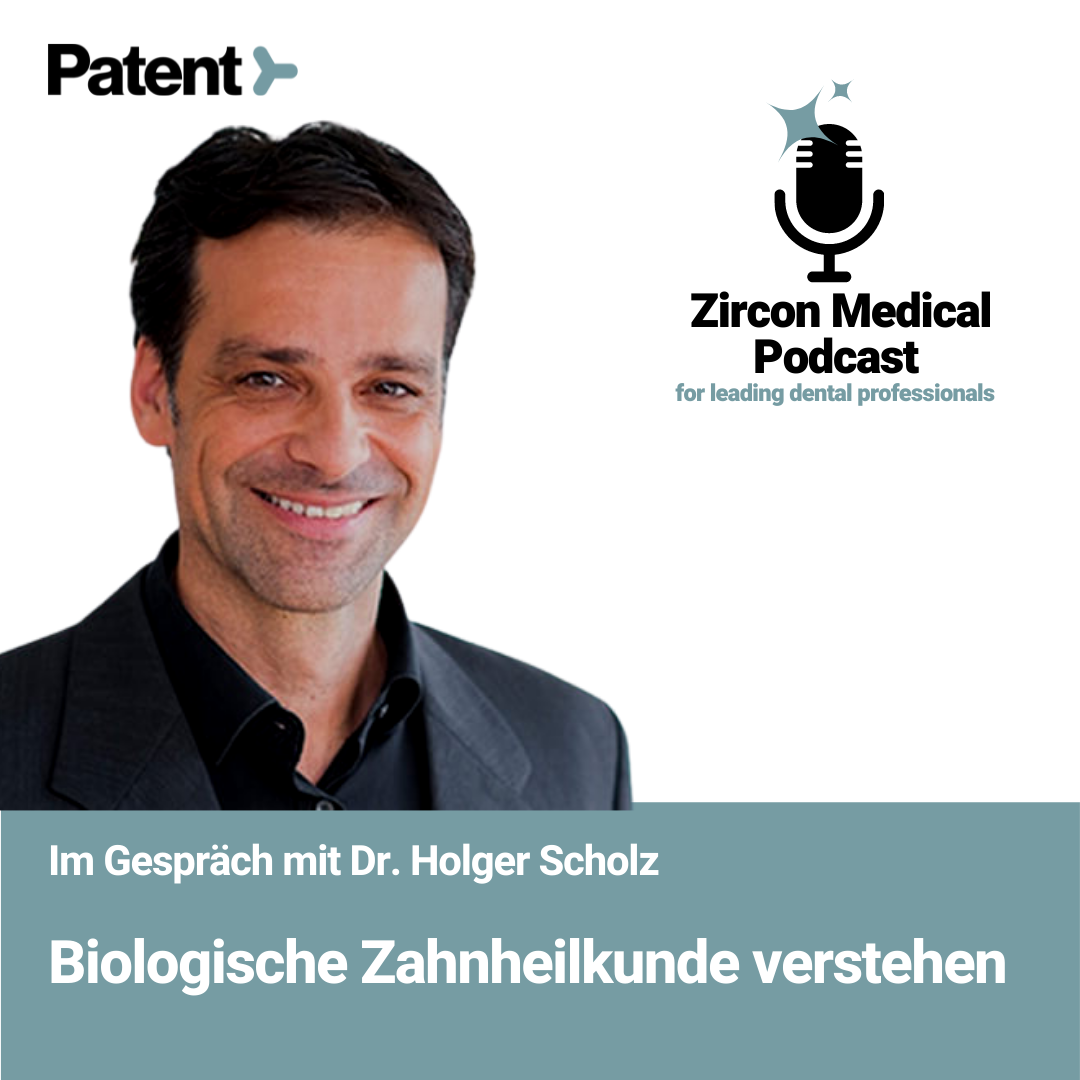
Patients make a conscious decision to seek biological dentistry
An overview of a typical visit at a biological dentistry
Biological dentistry places a strong emphasis on prevention
Biological dentistry is holistic and includes behavioral changes
Biological dentistry is yet to become mainstream
The value of digitalization in biological dentistry
Dr. Holger Scholz
Owner of Dental Clinic Konstanz, Germany
Owner of biological dentistry in Konstanz, called the Dental Clinic Konstanz
Studied chemistry at the University of Berlin
Studied dentistry at the University of Hamburg
Managing Director of the Council for Nutritional and Environmental Medicine (CONEM) in Germany
Specializes in metal-free implants — has placed more than 5000 implants
Instagram: @tagesklinik_konstanz
Website: https://www.tagesklinik-konstanz.de/
Lohnerhofstraße 2, 78467 Konstanz, Germany
In Conversation with Dr. Holger Scholz
In recent years, there has been an increasing move towards biological dentistry and metal-free dentistry. Dentists are gradually embracing a holistic philosophy for dental care, which views the mouth as an integrated part of the body. They’re also starting to rely exclusively on metal-free dental restorations, such as zirconium implants instead of titanium implants. But what’s driving this change, and is this trend likely to become mainstream in the near future?
Dr. Holger Scholz, the owner of a dental clinic dedicated to biological dentistry, can shed light on this phenomenon and its implications. Our team at Zircon Medical hosted Dr. Scholz on our podcast series to discuss biological dentistry, how it works, and its future implications.
Introducing Dr. Holger Scholz, the owner of a dental clinic in Konstanz, Germany
Dr. Holger Scholz is a dentist and the owner of a dental clinic in Konstanz dedicated to biological dentistry. He is also the Managing Director of the Council for Nutritional and Environmental Medicine (CONEM) in Germany. Dr. Scholz specializes in metal-free restorations and implants, and he has so far placed over 5000 implants.
Dr. Scholz studied chemistry at the University of Berlin, following which he completed his dental degree from the University of Hamburg. When asked if his degree in chemistry now helps with his dental practice, Dr. Scholz succinctly and honestly states, “no, not at all.” He says his education in dental school involved the basics of chemistry, physics, biochemistry, and physiology in the first semesters, and most of his colleagues forget those lessons soon enough since dentistry is more of a manual profession.
Dr. Scholz says his interest in biological dentistry was fostered later — it arose from his interest in alternative approaches to medicine, compared to his university education. He straightforwardly states that the education prescribed in dental schools isn’t adequate, especially in terms of biological dentistry. Dr. Scholz wanted to go beyond his education and ask pertinent questions about reaching optimal health, such as how to remain healthy and how to achieve maximum health. His questioning spirit led him to biological dentistry.
What’s your current challenge with dental implants?
My current challenge is... (choose)
Patients make a conscious decision to seek biological dentistry
Dr. Scholz says there’s a big difference between patients visiting traditional dental clinics and those specializing in biological dentistry. He says patients drawn to biological dentistry are more aware of their health and the choice of remedies. Traditional dental clinics usually receive patients from their immediate vicinity, but Dr. Scholz’s dental clinic receives patients who travel 500 kilometers or more, which means they make a conscious decision rather than doing what’s convenient
An overview of a typical visit at a biological dentistry
Dr. Scholz says he encourages patients to send their detailed medical and health history to the dental clinic before their appointment. They send a comprehensive health history, which may include their previous x-rays. After assessing the information, Dr. Scholz determines what he can do with the patient, how he can help them, and the treatments he can recommend. He calls the patient after the assessment to explain their dental clinic’s concept again.
Most of the patients who contact Dr. Scholz already understand the concept of biological dentistry, but he says it’s better to explain again. During the telephonic conversation, Dr. Scholz explains what the treatment would include and its possible cost. He also gauges if the patient is truly interested in following through with the treatment and only invites them for the appointment if there’s a high likelihood of proceeding with the treatment.
Dr. Scholz says he has a thorough vetting process because it also saves the prospective patient considerable time and money. Since many of his patients travel long distances to visit his dental clinic, he wants to give them all the information possible ahead of time. He provides a non-binding, free telephone call at the beginning, where the patient understands everything they can expect. After that, if they still decide to visit the dental clinic, Dr. Scholz can be satisfied that they’re truly interested in the treatment.
Dr. Scholz says they spend a lot of time with the patient during their first appointment. They take digital scans, photographs, and other diagnostic tests to ensure they have a complete picture. After curating a personalized treatment plan, he explains the entire treatment protocol and options to the patient. He guides the patient through every step of the treatment journey, including what he can expect after two years, all the intermediary steps, and the patient’s responsibilities.
Biological dentistry places a strong emphasis on prevention
Dr. Scholz says he gets a little annoyed when patients visit him every year with a new cavity. While some dentists pride themselves on the fact that their patients keep returning, Dr. Scholz has the opposite attitude — he wants patients to become so healthy that he never has to see them again. He aims to do dental treatments once, which should include nutrition, exercise, and all other measures necessary to lead a healthy life to ensure the patient doesn’t need constant treatments.
During the pre-selection process, Dr. Scholz says he filters out patients who are less likely to make the lifestyle changes necessary to prevent dental problems in the future. He says he used to be envious of dentists who grew old with their patients, never having to find new patients. But that’s not the case with his practice — once patients are rehabilitated, he hopes they remain healthy enough not to need him again. After that, they should only come for prophylaxis, if at all.
As a doctor, Dr. Scholz says his job isn’t merely to treat the obvious problem but also the underlying factors. He also admits that there’s a limit to the level of influence he can have over his patients. Some of his patients, even seriously ill patients, say they simply can’t make the necessary changes to their life. And the dentist must accept that, but then the patient must also accept the consequences of that decision — that they shouldn’t be visiting a biologic dental clinic.
Biological dentistry is holistic and includes behavioral changes
Dr. Scholz cites the example of sleep disorders to demonstrate how biological dentistry includes behavioral changes. Sleep disorders can occur because of numerous factors, including dental problems, jaw problems, hormones cortisol levels, chronic inflammation, or behavioral problems, such as looking at blue screens in the evening. All of these factors can contribute to sleep disorders, which, in turn, prevents the patient from entering a relaxed, parasympathetic state where their body can heal and recover effectively.
If a patient is undergoing surgery or receiving implants, they must have the ability to sleep comfortably. If the patient suffers from sleep disorders, they won’t enter the parasympathetic state, and their body won’t heal as effectively as necessary. The lack of sleep, in this case, would prevent effective healing and increase the risk of implant failures. Similarly, if a patient has a poor immune system or metabolism, they’re more likely to experience periodontitis and gum infections, which can lead to implant failures.
As such, Dr. Scholz says biological dentistry is about looking at the patient as a whole and considering their overall health. If the patient sleeps properly, prevents periodontitis, and has a healthy immune system, their dental treatments will also be more successful.
Biological dentistry is yet to become mainstream
When asked how the trends towards biological dentistry and metal-free dentistry are progressing, Dr. Scholz sounds a little pessimistic. He says he placed his first ceramic implant in 2006, and, at the time, he believes the whole world would be placing ceramic implants exclusively in four years. Of course, that didn’t happen, and the percentage of ceramic implants is still less than 5 percent. He clearly states that the situation hasn’t changed as dramatically as he had expected.
Of course, Dr. Scholz concedes that there’s a mega-trend towards health awareness among patients, but the gap is still too wide. He believes most people are still uninterested in health concerns. Furthermore, he also states that most of his colleagues are still unaware that ceramic implants are a real alternative now, liberated from the problems they had at the beginning, such as poor healing and fractures. Dr. Scholz is afraid most dentists are sleeping through this trend towards health.
Quoting Voltaire, Dr. Scholz reminds us that the first half of our life is spent trying to earn as much money as possible, and the second half is spent on gaining our health back. He believes a better paradigm would be actively working towards maintaining perfect health at all times.
The value of digitalization in biological dentistry
Dr. Scholz says digitalization in dental practice is extremely valuable, especially in the area of biological dentistry and implantology. Today, the entire workflow for the restoration of implants can be represented digitally, starting from the surgical planning to the final results. Digital tools, like Smile Cloud, allow patients to see the results of the treatment before the procedure, which gives them some clarity of mind.
Digitalization makes the entire process more predictable and faster. It allows him to create a digital model of the teeth, including fine-tuning, within two hours. If he had to rely on a dental technician, they would need at least two days to create a wax model. This allows them to skip several work steps, speed up the process, and minimize the work they’re outsourcing, bringing all the valuable workflow back into the practice.
You can find Dr. Holger Scholz at his dental clinic in Konstanz, Germany, or you can follow him on Instagram @tagesklinik_konstanz. You can also listen to Dr. Scholz in our Zircon Medical podcast.











